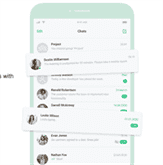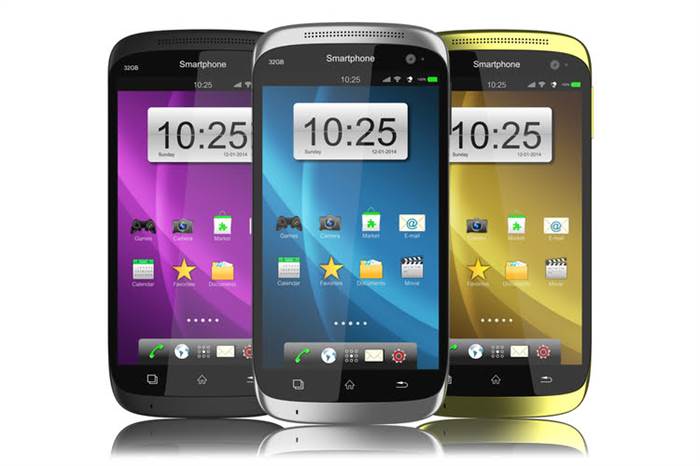For healthcare leaders, understanding the potential of AI-powered chatbots is crucial in ensuring that your organization remains at the forefront of this transformative shift. Data trends across the world have shown that with more smartphones in more hands, people are referring increasingly to Google searches as a way of self-diagnosing their symptoms. While convenient, the pitfalls of that approach include the fact that not https://www.globalcloudteam.com/ all data available on the internet is entirely accurate, and that human error may very well lead to a wrong diagnosis. Conversational chatbots with different intelligence levels can understand the questions of the user and provide answers based on pre-defined labels in the training data. Chatbot algorithms are trained on massive healthcare data, including disease symptoms, diagnostics, markers, and available treatments.
Glass Health is now among a handful of companies who are hoping to use artificial intelligence chatbots to offer services to doctors. These firms maintain that their programs could dramatically reduce the paperwork burden physicians face in their daily lives, and dramatically improve the patient-doctor relationship. As this list makes it abundantly clear, there are a wide variety of chatbots available today catering to different sectors in the healthcare industry.
What is an AI Chatbot?
The technology could help improve patient outcomes, reduce costs and increase efficiency in the healthcare system. Despite the initial chatbot hype dwindling down, medical chatbots still have the potential to improve the healthcare industry. The three main areas where they can be particularly useful include diagnostics, patient engagement outside medical facilities, and mental health. At least, that’s what CB Insights analysts are bringing forward in their healthcare chatbot market research, generally saying that the future of chatbots in the healthcare industry looks bright. Ada chatbot asks the user simple questions and runs their answers on a dataset of thousands of similar inputs and cases to provide the most approximate evaluation of their health and offer relevant solutions.
AI-enabled solutions in healthcare are moving beyond a simple one-way transfer of information. With 100+ successful projects for healthcare, ScienceSoft shares AI chatbot functionality that has been in demand recently. As we start to edge out of winter, improving our diet and boosting our exercise start to appear on our agenda. But, when it comes to encouraging a healthier lifestyle, it may surprise you that artificial intelligence could be your best friend. During the triage process, I can also help on the paperwork and address user questions, such as acceptable insurance or payment plan. Technology might also help improve the efficacy of treatment by notifying therapists when patients skip medications, or by keeping detailed notes about a patient’s tone or behavior during sessions.
XZEVN: mental health chatbot
Sensely’s offering, Molly, offers the service of using a patient’s entered information to match it with its information repository to provide a suitable diagnosis. However, where Molly differs is that it processes both text and speech as suitable communication. A robust speech recognition feature is baked into the chatbot to process speech in a diction agnostic manner and responds UX design in healthcare in a suitable manner. To further empower its users, Sensely offers its users the ability to share photos as well as videos. Chatbots can provide insurance services and healthcare resources to patients and insurance plan members. Moreover, integrating RPA or other automation solutions with chatbots allows for automating insurance claims processing and healthcare billing.

Imagine how streamlined the patient journey could become by limiting the need for receptionists, call center agents, and phone conversations with medical professionals in every patient interaction. AI chatbots can facilitate this process by removing the intermediary and automating basic tasks that usually demand being put on hold or waiting for a callback. AI chatbots can handle a wide array of tasks, from answering routine questions about appointments and prescriptions to offering personalized advice based on an individual’s health records. By automating these time-consuming processes, AI chatbots free up healthcare professionals to focus on more critical aspects of patient care, ultimately improving the overall patient experience. Furthermore, these advanced chatbots can cater to the unique needs of individual patients while maintaining the utmost level of privacy and security, making them indispensable tool for the future of healthcare. SmartBot360 is the most interesting offering amongst all the ones on this list for it has a very future-forward holistic approach towards revolutionizing healthcare.
Doctors give chatbots a chance
As greater strides are made into natural language processing and artificial intelligence , the usage of chatbots will only continue to increase. Being an early adopter of the healthcare chatbot will help you stand out from the crowd while also helping you improve your patient engagement and practice management capabilities. ScienceSoft is an international software consulting and development company headquartered in McKinney, Texas.

Today’s chatbots, however, are not like the automated systems of old, and, as such, they’re playing an increasingly important role in patient care. Longhurst, one of the study authors, doesn’t see those findings as showing that chatbots are better than doctors at answering patient questions. His takeaway is that doctors under tight time constraints — such as when flooded with patient portal messages — write short and just-the-facts responses, while chatbots generate longer answers within seconds. Yet some of the chatbot answers were off base from the question or contained factual errors.
How long does it take to create a chatbot from scratch?
Although the law has been lagging and litigation is still a gray area, determining legal liability becomes increasingly pressing as chatbots become more accessible in health care. With communication lines to their HCP open 24/7, patients can turn to chatbots for their health information needs rather than Google and WebMD. Healthcare AI chatbots have the potential to revolutionize patient care by identifying health red flags and making healthcare more accessible. These conversational agents can analyze patient-reported symptoms, cross-reference them with medical databases, and provide personalized feedback for potential issues in real time.

Even with the rapid advancements of AI in cancer imaging, a major issue is the lack of a gold standard . Chatbot is a timely topic applied in various fields, including medicine and health care, for human-like knowledge transfer and communication. Machine learning, a subset of artificial intelligence, has been proven particularly applicable in health care, with the ability for complex dialog management and conversational flexibility. Chatbots must be designed with the user in mind, providing patients a seamless and intuitive experience.
Bibliographic and Citation Tools
Let people choose to opt into the systems, rather than including them automatically. This allows doctors to process prescription refills in batch or automate them in cases where doctor intervention is not necessary. The pandemic chatbot has assisted in responding to more than 100 million citizen enquiries. The chatbot provided reliable public information and helped the authorities stop the spread of fake news. That provides an easy way to reach potentially infected people and reduce the spread of the infection. As is the case with any custom mobile application development, the final cost will be determined by how advanced your chatbot application will end being.
- Healthcare organizations around the world are utilizing chatbots and are seeing positive results and a return on their investment.
- Although ChatGPT is only trained on information available before September 2021, someone bent on spreading false information about vaccines, for instance, could flood the Internet with content designed to be picked up by LLMs in the future.
- Continual training of chatbots as new knowledge is uncovered, such as symptom patterns or standard of care, is needed.
- Security of sensitive information must be held to the highest standards, especially when personal health information is shared between providers and hospital systems.
- Furthermore, to avoid contextual inaccuracies, it is advisable to specify this training data in lower case.
Startup companies say that new programs similar to ChatGPT could complete doctors’ paperwork for them. But some experts worry that inherent bias and a tendency to fabricate facts could lead to errors. Both individuals and organizations that work with arXivLabs have embraced and accepted our values of openness, community, excellence, and user data privacy. ArXiv is committed to these values and only works with partners that adhere to them. He graduated from Bogazici University as a computer engineer and holds an MBA from Columbia Business School.
Triaging patient inquiries
The Security Rule describes the physical safeguards as the physical measures, policies, and processes you have to protect a covered entity’s electronic PHI from security violations. Ensure to remove all unnecessary or default files in this folder before proceeding to the next stage of training your bot. Not only do these responses defeat the purpose of the conversation, but they also make the conversation one-sided and unnatural. A friendly and funny chatbot may work best for a chatbot for new mothers seeking information about their newborns. Still, it may not work for a doctor seeking information about drug dosages or adverse effects. Any chatbot you develop that aims to give medical advice should deeply consider the regulations that govern it.
